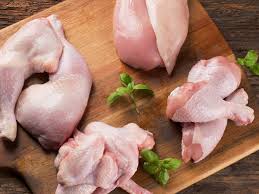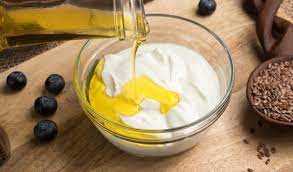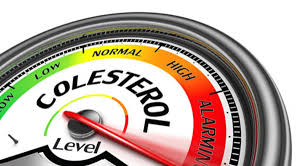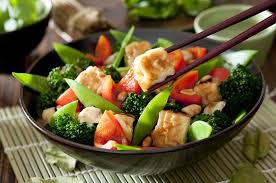Content of the Article
The pescatarian diet, which is one of the nutrition styles, is also followed by people who want to lose weight. For this reason, what is the pescatarian diet and how is it done, which is a subject wondered by many people? It is the subject of our article. In the article, we will discuss the basic principles of pescatarian nutrition and its effects on health.

What is the Pescatarian Diet?
Pescatarianism, which is a way of nutrition, is actually a philosophy of life. Some people may turn to this type of nutrition due to both health and environmental factors. Pescatarians are vegetarians who do not eat meat products but do consume fish and seafood.
Vegetarianism is also divided into subcategories. For example, lacto-ovo vegetarians consume eggs and dairy products from animal sources but no meat and fish. Ovo-vegetarians do not eat fish, meat or dairy products. The only animal product he consumes is eggs. Pescatarians, on the other hand, eat only fish and seafood from animal foods.
Does the Pescatarian Diet Help You Lose Weight?
Pescatarian nutrition is a way of eating and a philosophy of life rather than a diet to lose weight. Some people also use this nutrition method to lose weight. So, does the pescatarian diet make you lose weight?
Pescatarian diet helps lose weight. Because it is based on fiber foods that are generally lower in calories. Consuming high amounts of fruits, vegetables, grains and legumes supports weight loss. Thanks to its high fiber content, it increases the feeling of fullness while regulating the digestive system.
How to Follow a Pescatarian Diet?

You can follow the steps below when following a pescatarian diet:
- Fish and seafood selection: Choose fresh, natural, organic and sustainably farmed fish and seafood. These omega-3 fatty acids is rich in terms.
- Fruit and vegetable consumption: Make sure to consume fruits and vegetables at every meal. This provides you with fibre, vitamins and minerals.
- legumes: Include legumes, which consist of plant-based proteins such as lentils, chickpeas and beans, in your diet.
- Cereals: whole wheat bread, brown riceDiversify your diet by choosing whole grains such as wheat, oats and bulgur. This gives you energy.
- Dairy products: You can benefit from dairy products such as milk, yoghurt and cheese. These contain protein, calcium and other important nutrients.
- Vegetable oils: Prepare your meals using healthy vegetable oils such as olive oil, hazelnut oil, and avocado oil.
- Regular nutrition: Prefer to eat 3 main meals and 2-3 snacks a day. In this way, the feeling of hunger decreases and your blood sugar remains balanced.
- Water Consumption: Make sure to drink at least 2 liters of water a day. This ensures proper functioning of body functions.
- Reduce ready-made foods: Avoid processed and packaged foods. These are often unhealthy and contain additives.
- Consume in moderation: In accordance with healthy eating principles, be sure to consume portion-controlled and moderate amounts.
Tips to Follow on a Pescatarian Diet
- The best cooking method when preparing fish is to grill it with healthy oils. This is because unhealthy fats increase the risk of heart disease.
- You can also steam the fish, but avoid frying it.
- Avoid fish high in mercury, such as shark, tuna and swordfish, and consume fish such as trout and herring.
- Use fresh fish and seafood to get most of the nutrients.
- Choose rainbow-colored fruits and vegetables, such as dark leafy greens, yellow and red bell peppers, oranges, blueberries, purple eggplants and mushrooms.
- Eat dark fish such as spinach, kale and broccoli to increase iron intake. green leafy vegetablesConsume with.

Pescatarian Diet List
The pescatarian diet list below is an example to guide you when following this diet:
Breakfast
- 1 cup oatmeal or whole wheat cereal
- Avocado slices or hazelnut butter on 1 slice of whole wheat bread
- A few strawberries or bananas
- Plant-based milk or almond milk
Snack
- 1 handful of walnuts or almonds
- 1 piece of fruit (apple, orange, pear, etc.)
Lunch
- 1 plate of bulgur pilaf or quinoa salad with vegetables
- Walnuts or seeds on green leafy salad
- Vegetables dressed with fresh lemon juice or olive oil
Snack
- Hummus or bean paste on 1 slice of whole wheat bread
- A few cut fruits (watermelon, grapes, strawberries, etc.)
Dinner
- 1 plate of vegetable dishes (spinach, broccoli, zucchini, etc.)
- One serving of whole wheat pasta or potatoes
- 1 glass of yogurt
Snack
- 1 banana or other fruit
- 1 handful of hazelnuts or almonds
This is just a sample pescatarian diet list. It is important to get support from a healthcare professional for a personalized diet program.

What to Eat on a Pescatarian Diet?
The following foods can be consumed in the pescatarian diet:
- Vegetables: All vegetables such as broccoli, cabbage, carrots, zucchini, eggplant, lettuce and spinach can be eaten on a pescatarian diet.
- Fruits: All fruits such as apples, pears, oranges, bananas, strawberries, blackberries, cherries and grapes are suitable for the pescatarian diet.
- legumes: Legumes such as lentils, chickpeas, beans, peas and green lentils can be used as a source of protein and fiber.
- Cereals: Healthy grains such as brown rice, oatmeal, bulgur, rye, and whole wheat bread can be eaten on a pescatarian diet.
- Eggs and dairy products: Pescatarians consume animal-based proteins such as eggs, milk, yoghurt and cheese.
- Sea products: In a pescatarian diet, seafood such as fish, shrimp, mussels, crab and oysters are consumed.
- Vegetable protein sources: Vegetable protein sources such as soy are included in the pescatarian diet.
What Not to Eat on the Pescatarian Diet?
The pescatarian diet is the diet of people who do not eat animal foods other than fish and seafood. Those who follow this diet stay away from animal protein sources such as meat, chicken, turkey and some dairy products. Consumption of the following foods is not recommended in the pescatarian diet:
- Animal protein sources such as meat, chicken and turkey.
- Animal fats: It is recommended to avoid fatty animal products such as red meat, milk and dairy products, butter and margarine.
- Processed foods: Processed meat products such as hamburgers, sausages and salami should not be included in the pescatarian diet.
- Butter and processed unhealthy fats.
- Some dairy products, such as cheese.

Pescatarian Nutrition Benefits
The pescatarian diet has health benefits such as:
- Supports heart health: The pescatarian diet supports heart health by reducing saturated fat. Fish and seafood are rich in omega-3 fatty acids and reduce the risk of heart disease.
- Improves digestion: The pescatarian diet is based on fiber-rich fruits, vegetables and whole grains. These fibers regulate the digestive system and reduce the risk of constipation.
- Lowers cholesterol: Saturated fats in foods of animal origin can increase cholesterol levels. The pescatarian diet helps control cholesterol levels by limiting such foods.
- Provides weight control: The pescatarian diet encourages eating lower-calorie, fiber- and nutritious foods. This also helps with weight control.
- It reduces the risk of cancer: Research shows that meat consumption may increase the risk of some types of cancer. The pescatarian diet helps reduce the risk of cancer by reducing meat consumption.
- Healthy eating: The pescatarian diet includes fruits, vegetables, legumes, whole grains, healthy fats, and protein-rich fish and seafood. In this way, it provides a healthier diet.
However, when following a pescatarian diet, it is important to pay attention to food diversity and ensure adequate nutritional intake. Although fish and seafood are rich in protein and other nutrients, it is important to get enough nutrients from other food sources as well.
Harms of Pescatarian Nutrition
The potential harms of the pescatarian diet are as follows:
- Nutrient deficiencies: The pescatarian diet may cause some nutritional deficiencies because it excludes some animal foods. In particular, deficiencies in protein, iron, omega-3 fatty acids, calcium and vitamin B12 may occur.
- Iron deficiency: Meat is one of the best sources of iron. Pescatarians are at risk of iron deficiency because they consume limited meat. iron deficiencyIt can cause many health problems such as anemia, fatigue, weakened immune system and concentration problems.
- Vitamin B12 deficiency: Vitamin B12 is a vitamin found in animal foods. Lack of vitamin B12It can lead to health problems such as nerve damage, anemia, weak immune system and memory problems.
- Protein deficiency: Meat and fish are one of the main sources of protein. Protein consumption in the pescatarian diet is very limited and pescatarians are at risk of protein deficiency. Protein deficiencyIt can cause problems such as muscle loss, weak immune system and low energy levels.
For these reasons, it is necessary for health to create an adequate and balanced nutrition plan in the pescatarian diet. It would be beneficial to get help from a nutritionist for a more specific diet program.










